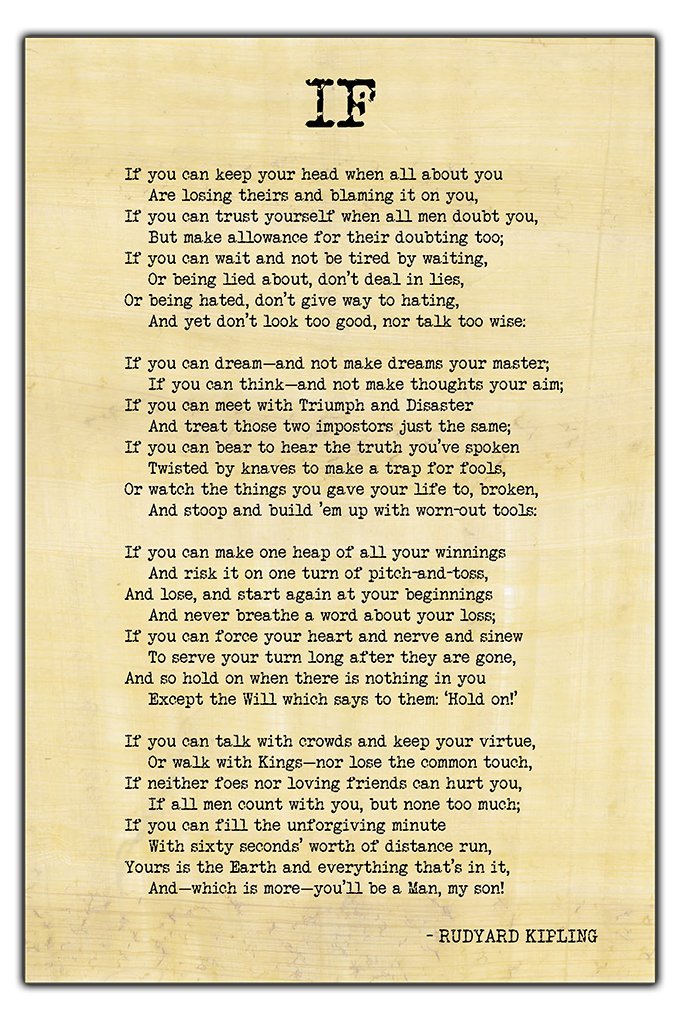



The second stanza speaks to integrity and urges the reader to always act with honor and dignity. The first stanza of the poem addresses honesty and admonishes the reader to always speak the truth, even when it is difficult. “If” by Rudyard Kipling is a poem that speaks to these traits and offers insights on how to develop them. Honesty, integrity, and self-control are important character traits to possess to be successful in life. The insights of “If” on honesty, integrity, and self-control The advice offered in the poem is still relevant today, which is probably one of the reasons why it continues to be popular.

“If” is a poem that has been widely anthologized and it is considered one of Kipling’s most famous works. The fourth and final stanza, which deals with adversity, begins with the line “If you can bear to hear the truth you’ve spoken / Twisted by knaves to make a trap for fools.” This stanza goes on to advise the reader to “speak your mind, but keep your head always cool,” and to “talk with crowds and keep your virtue.” The third stanza, which deals with failure, begins with the line “If you can meet with Triumph and Disaster / And treat those two impostors just the same.” This stanza goes on to advise the reader to “keep your head when all about you are losing theirs” and to “look at the world with honest eyes.” The stanza also advises the reader to “not lose faith in humanity / Because there is some good in all of us.” The second stanza begins with the line “If you can wait and not be tired waiting,” which is advice on patience. This stanza goes on to advise the reader to “trust yourself when all men doubt you” and to “make allowance for their doubting too.” The first stanza begins with the line “If you can keep your head when all about you / Are losing theirs and blaming it on you,” which is probably the most famous line from the poem. The first two stanzas offer advice on how to deal with success, while the last two stanzas offer advice on how to deal with failure. The poem consists of four stanzas, each containing four lines. The fatherly advice of “If” by Rudyard Kipling The poem has been widely praised for its wisdom and insight, and it continues to be popular today. “If” stresses the importance of honesty, integrity, and self-control, among other things. The poem is written in the form of a father’s advice to his son, and it explores the qualities that make a good person. “If” is a poem by Rudyard Kipling that was first published in 1909.


 0 kommentar(er)
0 kommentar(er)
